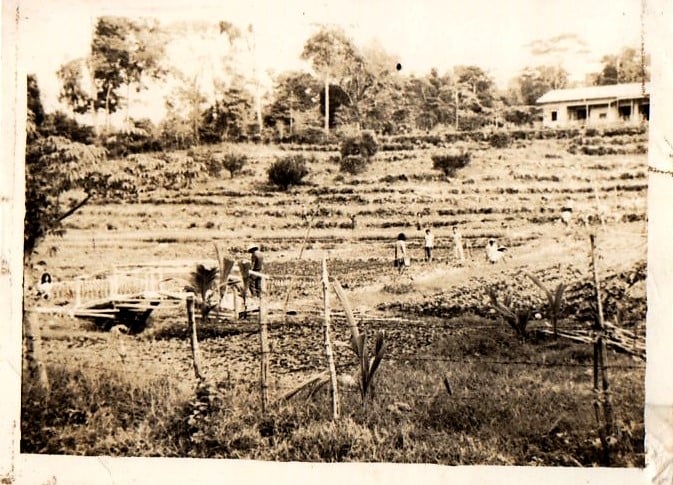Early Childhood in the Time of War

I, MARCELINO ANDORA DECHAVEZ, was born on September 28, 1935 and ranked number 3 of 6 siblings, 3 boys and 3 girls. My parents were FELIZA ANDORA and JESUS DECHAVEZ. Intimately addressed by the family members and close relatives as “Inday Fesay” was a 6th grade graduate who was the more pious leader of the sacred Novena, the Holy Rosary, and the other religious activities in the community. Despite his meager education of 4 years in primary school, “Toto Jesus” was elected by the community people as Barrio Teriente or head of the village/barangay/barrio.
During World War II in the mid-1940s, the Japanese occupation in the Philippines was very hostile to able-bodied male Filipinos. Japanese soldiers and hired Korean soldiers were abundant mercenary invaders. Once male Filipinos were suspected as members of the guerilla movement, they were arrested, imprisoned, or directly killed with a bullet or fixed bayonet.
My mother favored me, and in spite of my young age, she assigned me to carry out the more critical or serious tasks that she did not entrust to my elder siblings. Due to the very dangerous situation, our father stayed home or hid in the evacuation site. Our mother and I peddled whatever produce our father had fished during the night or farmed during the day. Since it was war time, the mode of exchange was not money or currency but through bartering. We bartered our fish in exchange of root crops, sweet potato, cassava, corn, or fruits for nutrition because there was eminent famine. We could not depend our livelihood solely on farming or fishing.
I experienced a memorable incident with a tall, handsome Japanese soldier ordering me to chase after a large rooster to catch it. As soon as I caught the rooster, he took it from me, and to my surprise, he removed his thick jacket and placed it on me, stepped back, and saluted in English, “ Very good, boy.”
Then came the United States Armed Forces some time in 1944 to save the Philippines and other Asian countries from the military control of the Japanese Imperial Forces. Amidst the great risk of the World War, we enjoyed witnessing the plane dog fights between the U.S. double-bodied lightning war planes and the Japanese ‘red zero’ fighter planes. At dawn we could see the countless machine gun bullets fired by both warring planes. U.S. fighter planes would hide in a thick cloud momentarily and skillfully make some unexpected dives and summersault combinations to mislead their opponents. Oh, how we cheered on the U.S. planes every time a Japanese zero fighter plane was gunned down. Amidst the war tensions of losing one’s life without cost, we cheered for the victories of the U.S. fighter planes.
Fortunately, we survived the war in 1945.
